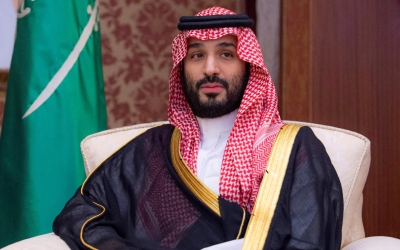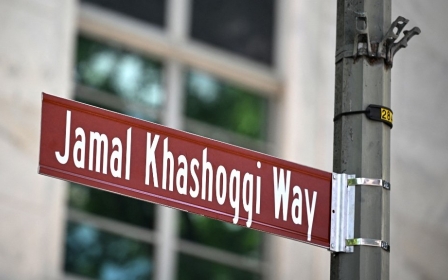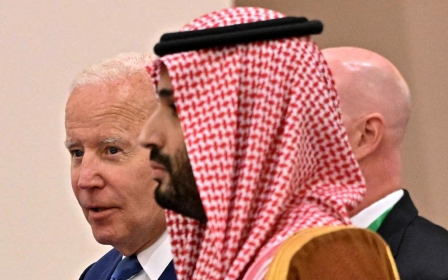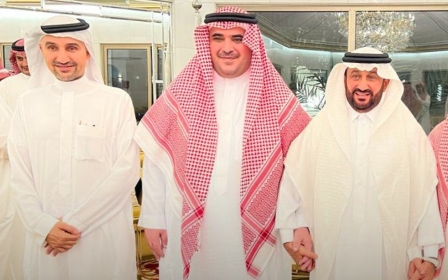Khashoggi: Saudi activists vow to keep fighting five years after murder
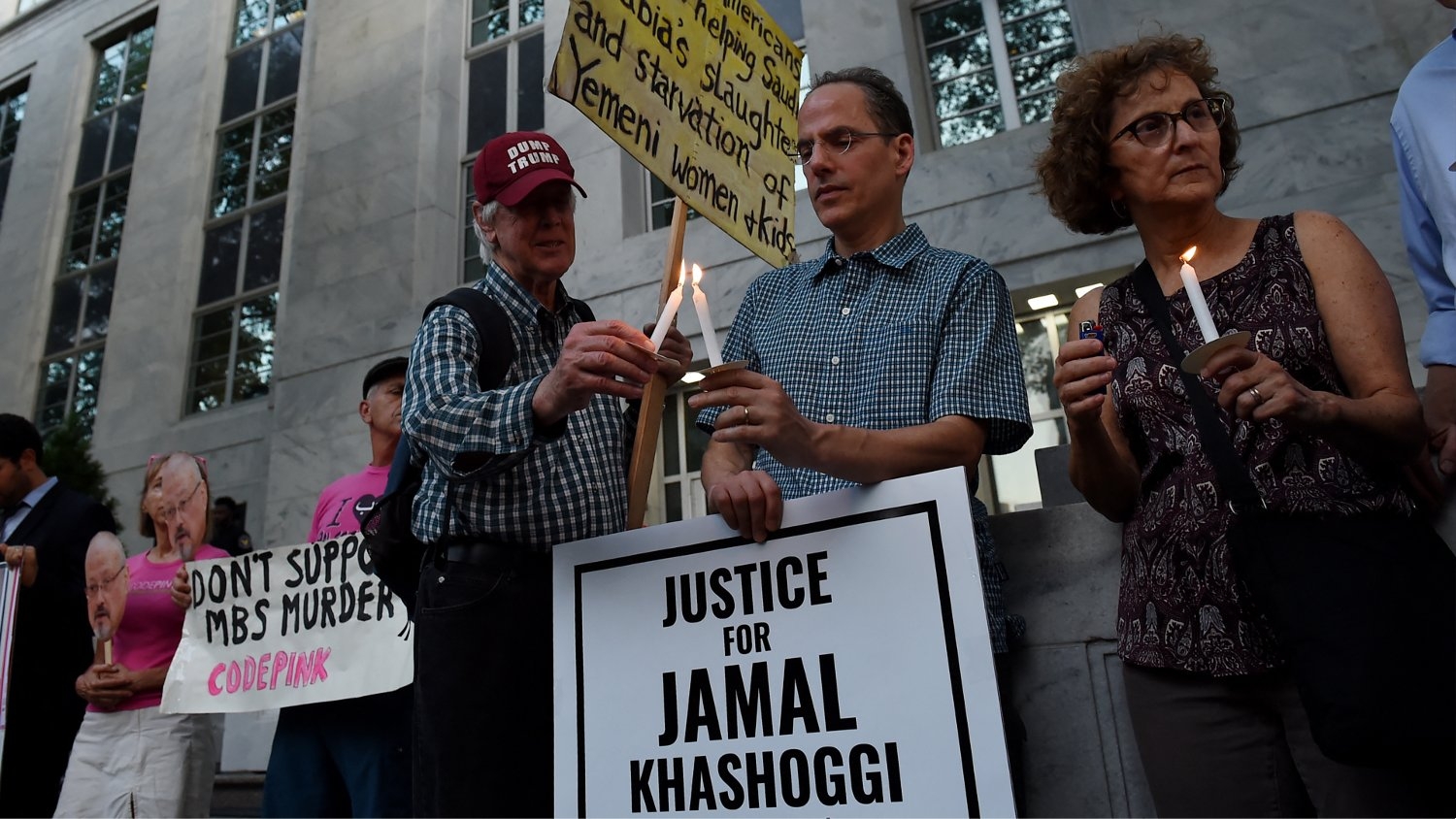
Five years after Middle East Eye columnist Jamal Khashoggi was brutally murdered inside the Saudi Arabian consulate in Istanbul, activists demanding human and civil rights say their campaign has been abandoned by western powers, including the United States.
During a webinar on Monday commemorating the anniversary of Khashoggi's kiling, Saudi dissident and activist Omar Abdulaziz said many believed the west was not "going to stop the Saudi government" and had abandoned the idea of addressing the country's dire human rights issues.
"I'm really sorry about that but this is the reality that we're living in," he said.
Khashoggi was killed inside the kingdom's Istanbul consulate on 2 October 2018 after going inside to get documents for his marriage to Turkish fiancee Hatice Cengiz. Turkish sources told MEE at the time that it took seven minutes for the 59-year-old to die.
The murder sparked an international outcry and tarnished the reputation of the oil-rich kingdom and powerful Crown Prince Mohammed bin Salman (MBS).
New MEE newsletter: Jerusalem Dispatch
Sign up to get the latest insights and analysis on Israel-Palestine, alongside Turkey Unpacked and other MEE newsletters
But in recent years, western leaders have have faced mounting criticism for not holding MBS accountable, who the US said was responsible for Khashoggi's murder.
'The United States has a moral imperative to hold perpetrators accountable and protect journalists and dissidents around the globe from similar acts of transnational aggression'
- Sarah Leah Whitson, Dawn
As a presidential candidate, US President Joe Biden had condemned the kingdom over the killing, saying it was a "pariah" and called for a rethinking of Washington's ties with the kingdom.
However, the relationship began improving early last year following Russia's invasion in Ukraine, with Biden greeting MBS with a fist bump when he travelled to the port city of Jeddah to mend frayed ties.
Last month, Biden elevated the greeting from a fist bump to a hearty handshake.
During Monday's webinar, Cengiz said "history will remember everyone who pretended to care about human rights, but turned a blind eye to MBS's crimes".
Failure to hold Saudi Arabia accountable
In recent months, the US has been pursuing a policy to normalise relations between Saudi Arabia and Israel, despite Israel routinely taking steps that undermine a two-State solution.
All the while, the kingdom has spent billions on its public image, investing in football league and also securing a major deal in the golfing world with the American PGA Tour.
The kingdom has also spent millions on public relations firms to help clean up its image.
Riyadh has since received some positive press coverage on how its youth are enjoying social changes, despite the country being named one of the "worst of the worst" for human rights and political liberties by Freedom House.
"We Saudis have always had our words put in our mouth. You have journalists talking about how happy the youth s about MBS," Lina al-Hathloul, the sister of Saudi women's rights activist Loujain al-Hathoul, said, referring to the crown prince by his initials.
"But no one has asked Saudis and if they do ask Saudis, they can't tell their opinion because if they're not happy, then they'll get imprisoned."
However, Abdulaziz said that despite the world moving on from the killing, they would not stop fighting for their political rights.
"I don't believe in playing the victim card because I do believe that we are strong enough to keep fighting and to keep telling the world that this fight is our fight," he said.
"There are so many brave people from our country, so many brave people they're going to keep doing what Jamal Khashoggi and other people are doing."
Khashoggi Act
US Senator Chris Murphy, a vocal critic of Saudi Arabia, said the failure to hold Riyadh accountable "has enormous costs to the reputation, the credibility and the security of the United States".
"If we want to be a nation that preaches freedom and equality and human rights around the world, then we have to back up our talk with action," he said.
The rights group Dawn also called on members of US Congress to pass two bills which were introduced on Monday.
One of the bills, named the Khashoggi Act, would put into law a travel ban on the individuals responsible for the killing of Khashoggi.
"The United States has a moral imperative to hold perpetrators accountable and protect journalists and dissidents around the globe from similar acts of transnational aggression," said Sarah Leah Whitson, Dawn's executive director.
Middle East Eye delivers independent and unrivalled coverage and analysis of the Middle East, North Africa and beyond. To learn more about republishing this content and the associated fees, please fill out this form. More about MEE can be found here.


